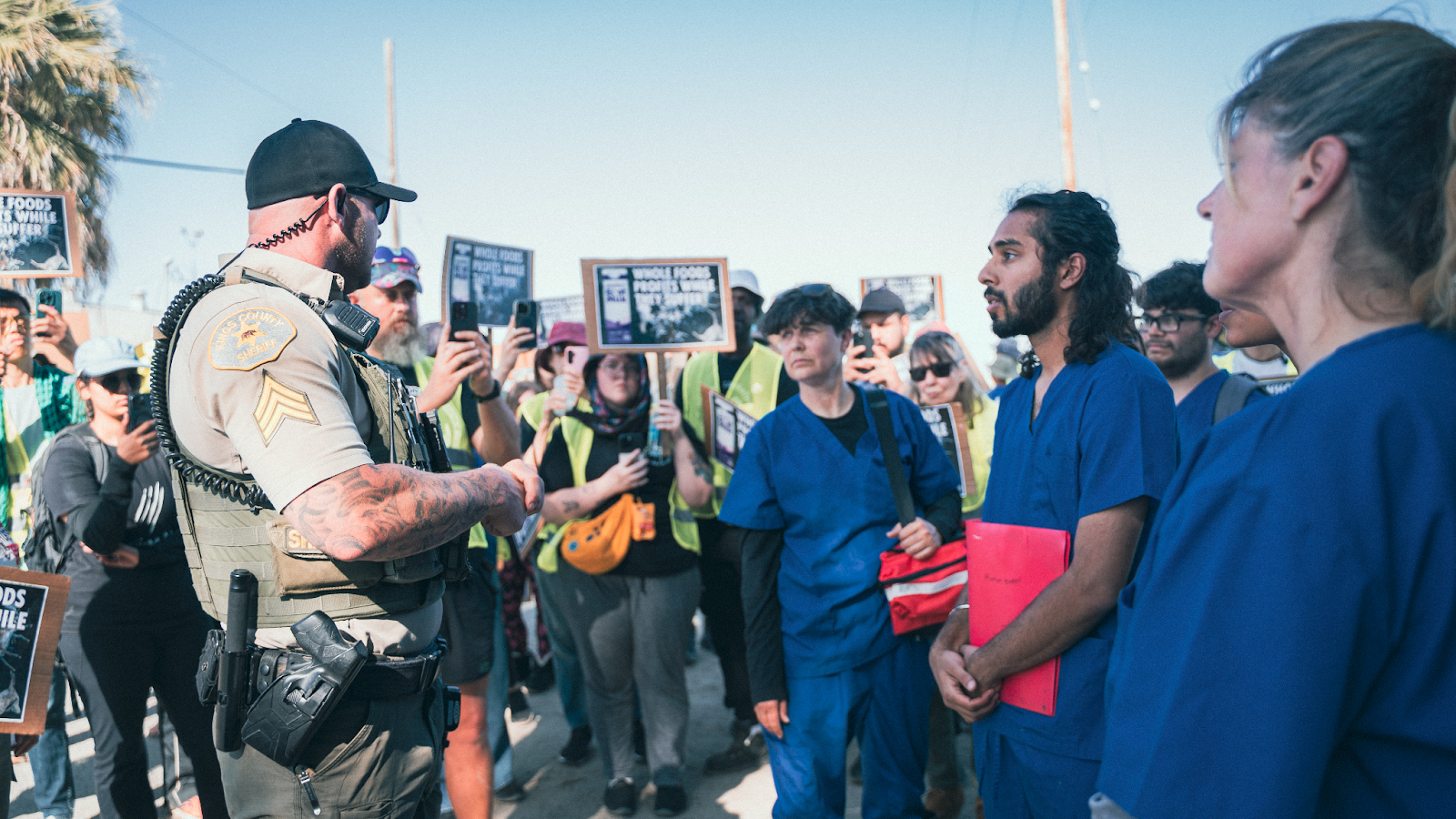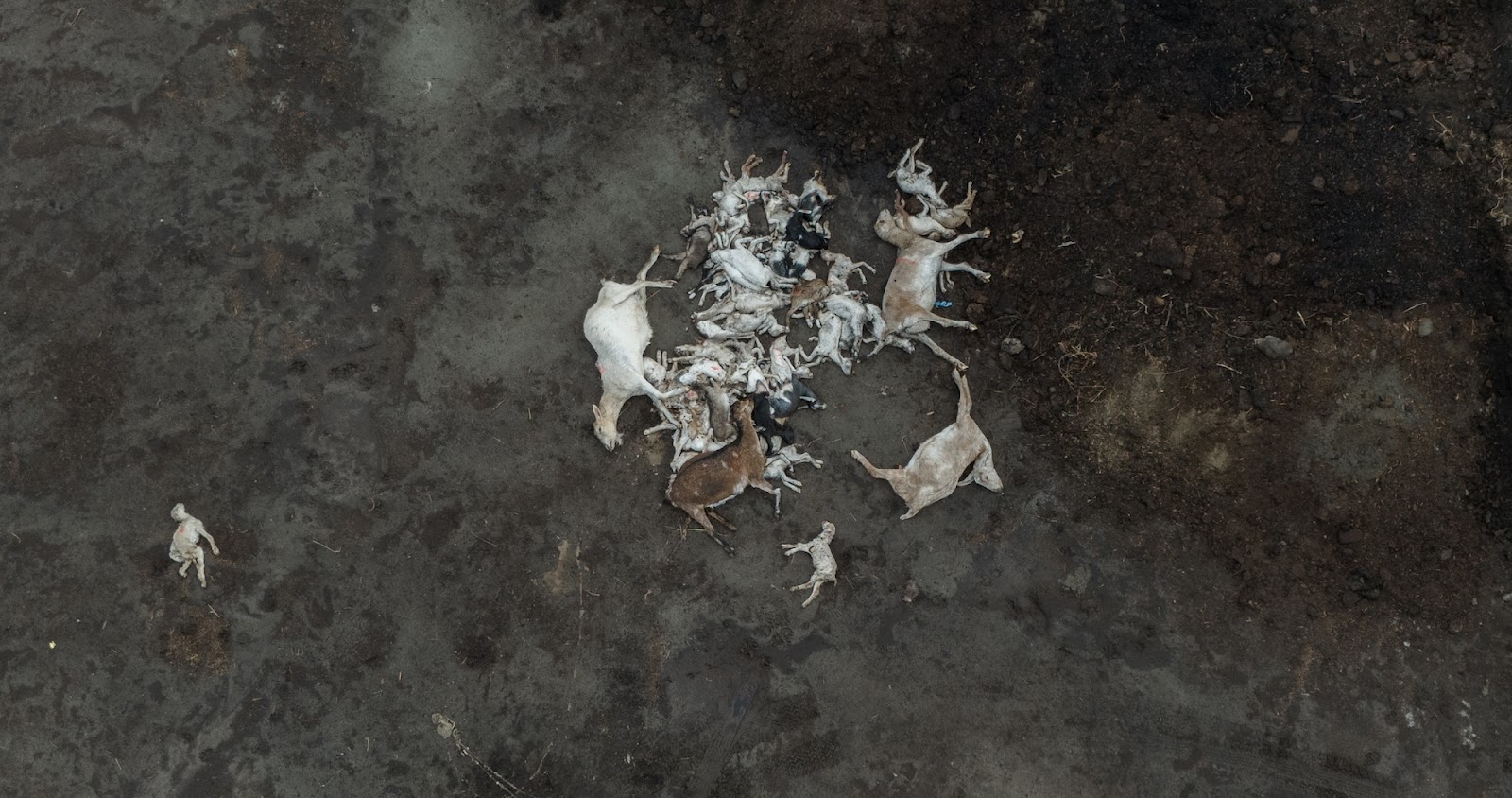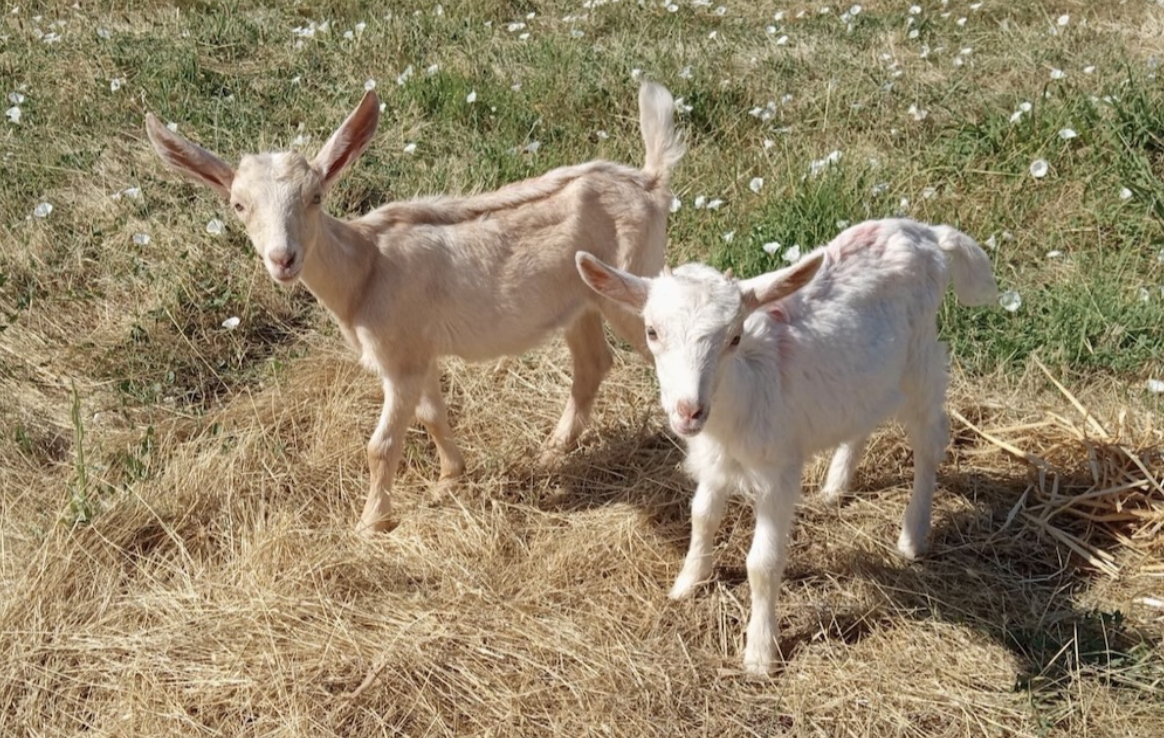Whole Foods is lying to you. I was arrested for revealing the truth.
Vera supplies the nation’s largest goat milk producer, Meyenberg, and its practices are a far cry from the rigorous standards Whole Foods promises. Thousands of goats are confined in crowded pens without access to pasture; newborn babies are routinely separated from their mothers; and, outside the confinement area, lies a mass graveyard of animals who died prior to slaughter.

In 2015, the New York Times published an investigation of a Whole Foods egg farm. The hens depicted therein—diseased, overcrowded, and confined indoors—stood in stark contrast to Whole Foods’ advertisements, which depicted happy animals and promised high standards of animal welfare.
Ten years later, Whole Foods continues to mislead well-meaning customers with its deceptive marketing. A quick glance at its animal welfare standards reveals a photo of animals grazing on green pasture and a promise of “rigorous standards” for animal welfare because “We also care about how animals are raised.”
That is dishonest. Over a few months this year, I and a team of investigators with Direct Action Everywhere documented cruelty and neglect at a Whole Foods goat farm in central California called Vera Goat Dairy. Vera supplies the nation’s largest goat milk producer, Meyenberg, and its practices are a far cry from the rigorous standards Whole Foods promises. Thousands of goats are confined in crowded pens without access to pasture; newborn babies are routinely separated from their mothers; and, outside the confinement area, lies a mass graveyard of animals who died prior to slaughter.

I personally visited this graveyard and observed the remains of what likely amounts to thousands of animals. This mass grave is troubling not only because it indicates routine animal neglect, but also because it poses serious public health risks. Dead animals require proper composting or incineration to kill bacteria and viruses. At this farm, however, goats are disposed of in an open-air dead pile where other species like cows, birds, and dogs are documented to interact with the deceased goats. According to a veterinarian who reviewed this evidence, “the spread of pathogens between species could lead to bacteria and viruses mutating [into] more contagious and deadly strains of pathogens.”
Many of these practices constitute violations of the very “Certified Humane” standards that Whole Foods touts in its marketing. Similarly, the farm’s practices violate California’s animal cruelty statute and the local water board’s regulations on carcass disposal. An attorney on our team reported these violations to the state and local authorities, yet no remedial action was taken.
Ultimately, it was this lackluster response that inspired our team to intervene in what is truly an emergency situation for the thousands of goats confined upon this Whole Foods farm. In late May, the investigatory team and I entered the farm in broad daylight to further document its abuses. We witnessed the graveyard with its freshly dead animals, the crowds of animals confined to barren lots, and, most importantly, two baby goats, who we later named Phoebe and Celia. We found these babies confined to crowded pens, exhibiting signs of respiratory infection. Afraid they would end up in the dead pile, we rescued them from the farm and rushed them to receive veterinary care.

Later that day, we told the police exactly what happened. I described the dead pile, the sickly animals, and the goats we rescued. And I requested the officers allow us back onto the farm to help the animals who were still suffering within. Instead of helping us, though, the officers arrested us, and I spent the next two hours in the back of a cop car.
That the police would arrest whistleblowers rather than the actual abusers is absurd. Unfortunately, however, my story is a small example of a much larger problem. America’s food system, like so many of our other institutions, is broken. While most people recoil at animal abuse, our government provides corporations like Whole Foods free rein to abuse these gentle creatures on sprawling, industrial operations. Advocates who expose this status quo are then subject to government crackdowns.
This threat of state repression is real, but it also reveals the cracks in what is a deeply unstable system. Whistleblowing, after all, is only damaging when you have something to hide.
Taj is an activist and attorney litigating animal activist defense cases.



